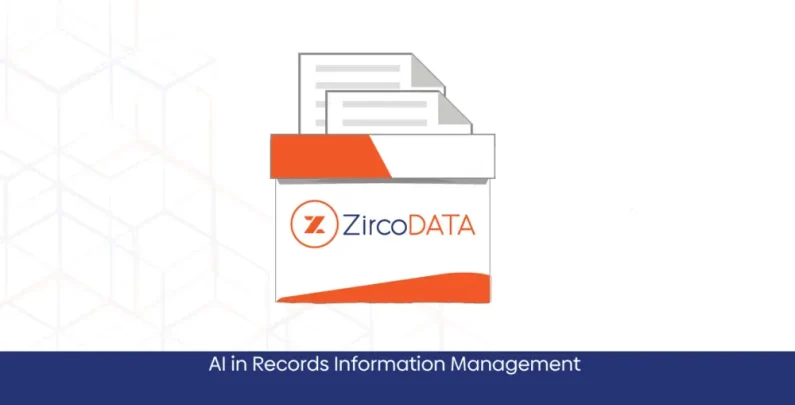
AI in Records Information Management (RIM)
As the volume of data created by organizations continues to soar, so does the challenge of managing and understanding this information. Gartner predicts that by 2025, organizations will grapple with extracting value from increasingly unstructured data. This data can be anywhere, in physical or digital formats, making it a significant task for professionals in the field.
Enter Artificial Intelligence (AI), a transformative force for Records Information Management.
Understanding the Terms:
- Artificial Intelligence (AI): AI refers to the science and engineering of creating machines capable of performing tasks that would usually require human intelligence.
- Machine Learning (ML): ML is a subset of AI where algorithms learn from past data. It’s further broken down into supervised and unsupervised learning, with the former being more common presently.
- Records Information Management (RIM): RIM involves the efficient and systematic control of the creation, receipt, maintenance, use, and disposition of records. With the integration of AI, RIM can become even more efficient, especially concerning unstructured data.
The AI-RIM Confluence:
- Managing Immense Data Volumes: AI proves crucial in handling the vast amounts of data produced daily.
- Bridging Varied Data Sources: Advanced RIM integrates data from different systems, erasing the need for manual synthesis and speeding up decision-making processes.
- Pinpointing Relevant Records: Especially in legal scenarios, AI and ML can assist in discovery, segregating pertinent records from non-essential ones, enhancing efficiency over manual methods.
- OCR in Document Recognition: One of the prominent applications of AI in RIM is Optical Character Recognition (OCR). By scanning and recognizing text from images, handwritten notes, or printed documents, OCR tools can convert non-digital records into digital, searchable, and analyzable data.
- Automatic Content Classification: Using AI and ML, records are automatically categorized, simplifying data management processes.
- Processing Voice Records: AI is making strides in converting spoken word into text-based data, proving invaluable for managing and analyzing audio records.
To sum up, AI, especially tools like OCR, magnify the competencies of RIM professionals. We might not be at a point where AI can decipher historical records seamlessly, but its current prowess, coupled with future potential, ensures an exciting trajectory for the field of Records Information Management.
Ready to Simplify and Supercharge Your Information Management?
Upgrade your data management with our secure record storage, efficient cataloguing, precise document scanning, and streamlined culling services. Let’s transform your information management together. Contact us today!
